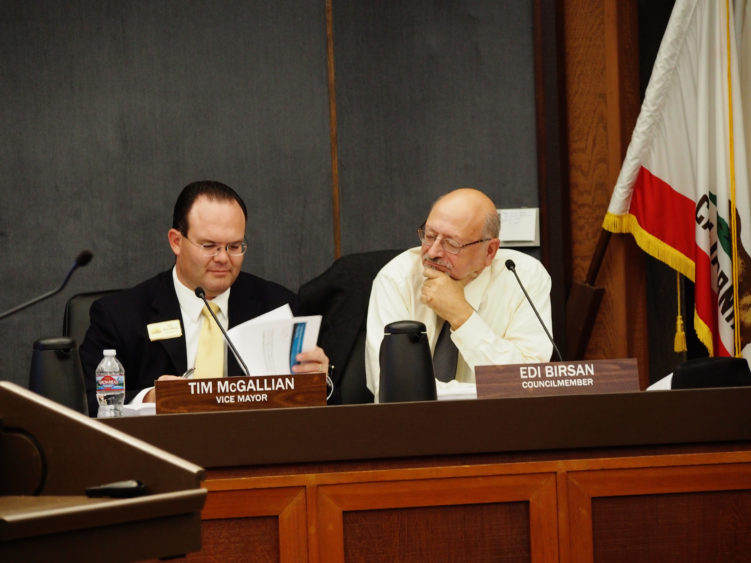Contra Costa County officials on Friday will formally kick off a campaign supporting a half-cent countywide sales tax ballot measure, and remain confident that a state Senate bill still in limbo in Sacramento that would make the county measure viable will soon become law.
The Contra Costa County sales tax measure, Measure X, depends on the passage of SB 1349, drafted by Sen. Steve Glazer, D-Orinda. The original bill has been amended to include language providing relief to the county and several cities — including Danville, Lafayette, Pittsburg and San Ramon — for future similar tax measures. Without passage of SB 1349, the countywide measure cannot move forward.
Concord Mayor Tim McGallian, who has worked in support of Glazer’s bill, said:
“SB 1349 is important because it clarifies existing law about whether taxes imposed by other local agencies like BART and the Contra Costa Transportation Authority count against the 2 percent local cap for transactions and use taxes.”

In other words, SB 1349 would allow California municipal governments to float sales tax measures for “transactions and use tax for general or specific purposes” even if they would put those local governments above that 2 percent cap.
That bill, County Supervisor John Gioia said Thursday, will let Contra Costa County and its 19 cities continue to seek tax additional tax income in the face of municipal budget decimations brought about by the raise money made increasingly important by the Covid-19 pandemic and its devastating financial costs.
That bill, which as of Thursday morning had not yet been signed into law, will become law at the end of September even if Gov. Gavin Newsom doesn’t sign it and simply lets it. Newsom would have to veto the bill outright to prevent it from becoming law, something Gioia said is highly unlikely.
The county’s Measure X half-cent sales tax measure, if approved by voters in November, would raise an estimated $81 million each year for 20 years to fund county hospital operations and community health centers, fire and other emergency responses and various social safety-net services.

Gioia said other Bay Area counties already have sales taxes that provide this kind of revenue, and that Contra Costa needs it now, especially in light of the pandemic. But Gioia said county leaders have to make a case to the voters that the money is desperately needed to preserve the aforementioned services.
Gioia said:
“We’ve been responsible with our budgets.”
Concord voters will say yes or no on Nov. 3 to Measure V, extending an existing local half-cent sales tax and increasing it to 1 cent. City officials anticipate that, if approved, the measure would raise about $27 million a year for a variety of uses, including emergency and disaster preparedness, community policing, homelessness services and homeless services. This measure doesn’t have a sunset, and would have to be ended by a vote of Concord residents.
McGallian said this week that his city’s tax measure would not be affected by the fate of SB 1349.
He said:
“But we know how important this is to the region, so we wanted to work collaboratively.”
In Orinda, voters will be asked to approve Measure R, a proposed increase of an existing half-cent sales tax to 1 cent, which would generate about $2.4 million a year for emergency preparedness and maintenance of infrastructure, including streets and storm drains. The tax would run for another 20 years if approved. As with Concord’s ballot measure, Orinda’s is not dependent on the enactment of SB 1349.
Bay City News is a 24/7 news service covering the greater Bay Area. © 2022 Bay City News, Inc. All rights reserved. Republication, rebroadcast or redistribution without the express written consent of Bay City News, Inc. is prohibited.
